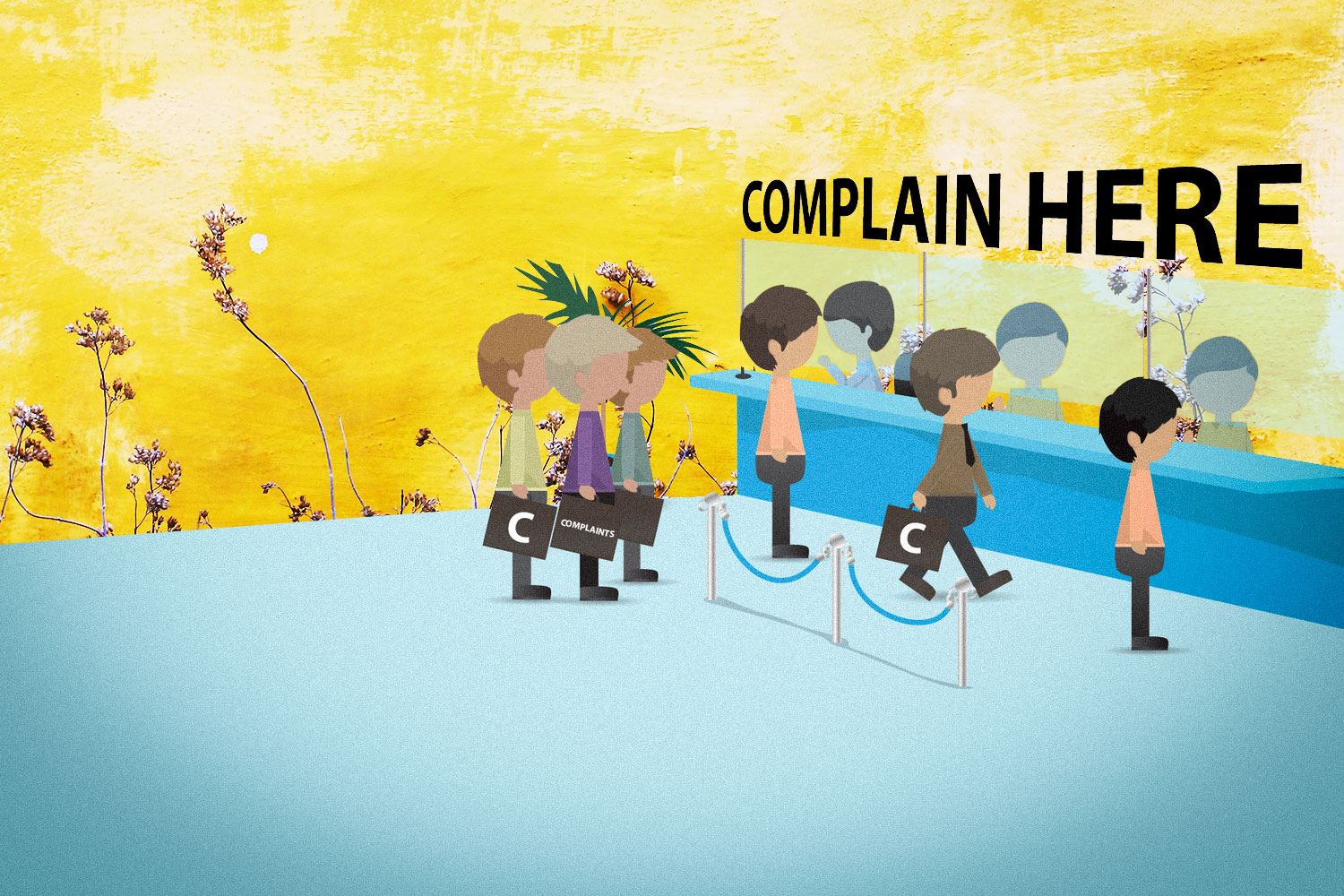Would you like to stop?
“Every time you complain, your irritability — like a virus — is neurologically picked up by every person who hears your voice or sees your face. So by all means, train your brain to be optimistic and positive because (according to 30+ years of longitudinal research conducted by Duke University and the Mayo Clinic), it will literally add years to your life.” — Mark Waldman
Researchers say the average person complains 30 times a day. But there are people who never complain. Their lives, from the outside, aren’t any different than anyone else’s. They didn’t win the lottery. But they rate themselves as happier than other people. Their relationships are closer. They live longer. And while I haven’t yet seen any research on this, I’d bet they’re happier parents.
What’s wrong with complaining? Research shows that when we listen to complaints of any kind, we get demoralized. And that includes our own complaints! Listening to complaints starts our minds on a cycle of negative thinking, which intensifies our “fight or flight” wiring. And when others, including our children, listen to our complaints, it doesn’t help them change. It reinforces those feelings of “I’m not good enough…Life isn’t good enough.”
So why do we complain? It’s the grown-up version of whining; an expression of powerlessness.
Just to be clear, stating needs is not complaining, as long as you’re not making the other person wrong. Expressing emotion such as sadness is not complaining, as long as you aren’t making your feelings the other person’s fault. We all need to feel seen, heard, and understood. There’s nothing wrong with sharing our feelings about what’s been hard for us; that helps us let go of them and move on.
Complaining is when we blame others, or life, instead of accepting the situation and taking responsibility to make things better. It can become a habit; the story we tell about our lives.“You won’t believe how awful my day (week, year, life) has been.”
The goal is not to become a doormat, but a person of integrity, willing to take back our power and take responsibility for changes that need to happen. (Sometimes those changes are in the outside world. Sometimes they’re inside us.)
As we head into the season of gratitude, it’s a terrific time to support yourself to transform this habit. Ready to stop complaining?
1. Notice any time you start to complain, and bite your tongue. Take a deep breath. Give up the gratification of reviewing why you’re right and commit to being a positive force in the situation. Even if you can only make a small difference, that difference can lead to bigger changes.
2. Are you complaining out of habit? (“You kids have been driving me crazy the whole trip!”) If so, remind yourself that your child believes everything you tell him about himself and unconsciously tries to live up to it. Why not focus on the positive?
3. Are you complaining from feeling powerless? (“Nobody around here ever does any work except me!”) Reaffirm to yourself that you’re in charge, so if you really want to, you can change anything going on in your house.
4. Are you complaining from frustration? (“This kid never does his homework, no matter how much I yell. I give up!”) If you’re frustrated, maybe it’s time to try a new strategy. (For instance, kids learn best when we give them the structure to learn good habits, such as sitting with them while they do their homework, until they master the skill of sitting down to tackle something unpleasant and learn to monitor their own work.)
5. Regardless of why you’re complaining, consider what action you could take to change the situation. Find better ways to entertain your children on family trips? Orchestrate a family clean-up for fifteen minutes every evening? Eliminate TV on weeknights? Make a plan to support yourself and your family to change. Make it happen, one step at a time.
6. Challenge your family to live this week complaint-free. Put a jar on your counter. Every time anyone complains, that person has to put a coin in the jar, and express gratitude in place of the complaint. “Not chicken again!” might become “I am so grateful we get to have a healthy dinner and that Dad cooked it for us!”
“I hate picking up the things you kids leave strewn around the house” might become “Dinner will be ready in ten minutes. I’m so glad that you kids will have all your things picked up first so I can feel peaceful as Iserve everyone dinner…Let’s all get busy! I love that everyone in this family is learning to clean up our own messes.”
“Can’t you ever comb your hair?” might become “What a handsome son I have!”
“My boss did it again!” might become “I am grateful to have a job and a paycheck to feed my family.”
At the end of the week, donate your coins to charity. You’ll be amazed how much money you raise for your favorite charity as you re-train yourself. (Children who are too young to get an allowance can put an appreciation in the jar, that they dictate to you.)
7. Remind yourself of all of your blessings, including that you’re lucky to be entrusted as the guardian and guide for your child, so you want to offer support, rather than criticism
Source: Dr. Laura Markham, Counsellor
الشخص العادي يشكو بمعدل 30مرة في اليوم
ولذلك حاول بكل الوسائل ان تمرن ذهنك على الإيجابية والتفاؤل
فلقد خلصت نتائج بحث مشترك و مطول اجرته كل من جامعة ديوك و مايو كلينيك إلى انك اذا مرنت ذهنك بكل الوسائل على الإيجابية و التفاؤل
سوف يضيف ذلك سنوات إلى عمرك
ويقول الباحثون ان معدل الشكوى عند الشخص الطبيعي هي 30 شكوى في اليوم
ولكن هناك اشخاص لا يتذمرون على الإطلاق وحياتهم لا تختلف عن اي شخص آخر فهم لم يفوزوا بجائزة اليانصيب
ولكنهم يصنفون انفسهم على انهم اشخاص سعداء
والنتيجة ان علاقتهم بالآخرين ناجحة
كما انهم يعيشون لفترة اطول
و على الرغم من عدم وجود اي ابحاث تؤكد ذلك الا ان جميع المؤشرات ترجح ان الأشخاص السعداء هم آباء و امهات رائعون
وذلك على عكس المتذمرون الذين اكدت جميع الأبحاث
ان تذمرهم يشكل خطراً عليهم وعلى من حولهم
ولكن للتوضيح يجب ان نعلم امر مهم حتى نستطيع التفرقة بين التذمر و البوح
فالبوح او التعبير عن النفس بدون القاء اللوم على شخص آخر ليس خطئاً
فالتعبير عن مشاعر كالحزن مثلاً لا يعتبر شكوى
فجميعنا بحاجة لمن يسمعنا و يرانا ويفهمنا
وهذا ليس عيباً على الإطلاقاما الشكوى فهي
القاء اللوم على اشخاص او على الحياة بدلاً من مواجهة الموقف و تحمل المسؤولية
و لذلك قبل ان يتحول تذمرك الى عادة
اليك بعض الطرق التي تساعدك على التوقف
1-بمجرد ان تبدأ في الشكوى….عض لسانك
خذ نفس عميق و تخلى عن شعورك بأنك على صواب دائماً
و حاول ان تقابل المواقف الصعبة بإيجابية
و حتى لو احدث ذلك فرقاً صغيراً لا تستهن بهذا الفارق ،لأنه قد يقودك الى احداث تغييرات كبيرة
2- هل لديك شكوى متكررة
(انتم ايها الأطفال تدفعونني نحو الجنون طوال الرحلة)
قبل ان تقول هذه العبارة تذكر ان طفلك يصدق و يؤمن ما تقوله عنه لذلك من الأفضل ان تركز على الأشياء الإيجابية بشخصية طفلك فمن المؤكد ان هذا افضل له
3-هل تشكو من الشعور بالعجز؟
(لا احد هنا يعمل غيري)
اخبر نفسك دائماً انك في موقع مسؤولية وتستطيع ان تغير اي شيء
طالما رغبت بذلك
4-هل تشكو من الإحباط؟
(طفلي لا يعمل واجبه المنزلي رغم صراخي عليه طوال الوقت…لقد يئست)
اذا كنت حقاً محبط فلقد حان الوقت لاتباع استراتيجية جديدة
مثل الجلوس معه اثناء قيامه بواجبه المنزلي حتى يعتاد على ذلك
5-بغض النظر عن شكوتك
-ضع في الاعتبار الطريقة التي ستتبعها لتغيير الموقف
حاول ان تجد افضل الطرق التي تجعل اطفالك يتمتعون خلال رحلتكم العائلية
نظم حملة تنظيف جماعي يشارك فيها كل افراد الأسرة كل مساء لمدة 15 دقيقة و التوقف عن مشاهدة التليفزيون في نهاية الاسبوع
ضع خطة تغيير لك و لعائلتك
6-تحدى عائلتك بقضاء هذا الأسبوع دون شكوى
قم بوضع جره في مكان معروف و ملحوظ للجميع في المنزل
وفي كل مرة يشكو فيها احد افراد العائلة يتوجب عليه وضع عملة نقدية في الجرة بالإضافة الى ضرورة تحويل الشكوى الى تعبير عن الامتنان
فمثلاً بدلاً من ان تقول لابنك متى ستمشط شعرك هذا؟
يمكنك ان تقول له “احبك يا اجمل ابن في العالم”
7-تذكر كل الأشياء الجميلة الموجودة في حياتك
و ذَكِر نفسك دائماً بأنك شخص محظوظ لأنك تحرس و ترعى اطفالك
ولذلك فمن الأفضل ان تقدم لأطفالك الدعم الكامل و تمد لهم يد العون بدلاً من ان تنتقدهم
الدكتورة لورا ماركهام









